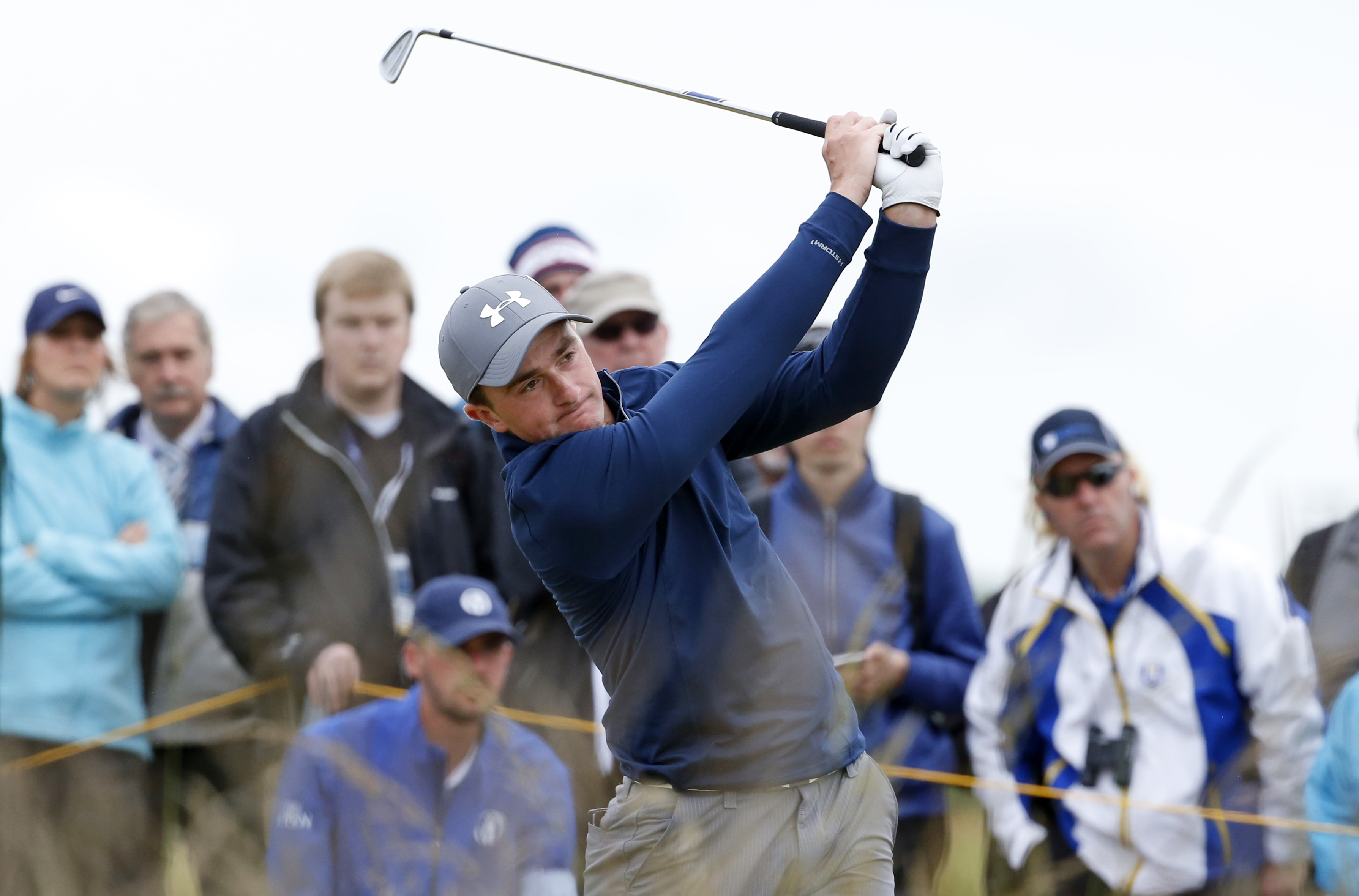Irish amateur Paul Dunne leading the British Open
The Home of Golf has seen most everything, but amateur Paul Dunne gave it something very special on a rare Sunday third round at the British Open.
The 22-year-old from Ireland shot 6-under 66 on Sunday at the Old Course to take a share of the lead at 12-under 204, which is the lowest 54-hole total posted by an amateur in the history of the Open, which dates back to 1860. The 66 is the lowest-ever 18-hole score posted by an amateur in an Open at St. Andrews.
Dunne, who is actually eight months older than two-time 2015 major winner Jordan Spieth, posted a bogey-free round, first taking the lead at 11-under par following a birdie on the 10th, then taking the lead alone again after a birdie on the par-3 15th. Several players have joined him at points with a share of the lead.
For the week, Dunne has made 14 birdies with just two bogeys, among the fewest dropped shots in the field for the championship.
“I’m well capable of shooting the scores that I need to win if everyone else doesn’t play their best,” Dunne said. “Whether it happens or not, I can’t really control. I can just go out and try to play my game and see where it leaves me at the end of the day. Hopefully I play great again and post a good number.”
The University of Alabama-Birmingham product is the first amateur since Bobby Jones in 1927 to have at least a share of the 54-hole lead in The Open. Jones was the last amateur to win the Claret Jug, doing so as part of his Grand Slam season in 1930.
The last amateur to win any major was Johnny Goodman, who won the 1933 U.S. Open. The last amateur to win any tour event was a guy named Phil Mickelson, back in 1991, when he won the Northern Telecom Open as a 20-year-old junior at Arizona State
Dunne was a two-time All-American at UAB, the alma mater of another Irishman, Graeme McDowell. Dunne finished fifth in this year’s NCAA championship.
He’s also not the only amateur who’s in contention. Jordan Niebrugge, a 21-year-old senior-to-be at Oklahoma State, is at 9-under, just three strokes back.
And, if you’re wondering what happens to the prize money Dunne and Niebrugge would win if they were professionals, it filters down the leaderboard. So if Dunne were to win, first-place money ($1.8 million) would go to the runner-up ($1.025 million), runner-up money to the third-place finisher, and on down the line.
“It’s surreal I’m leading The Open, but I can easily believe that I shot the three scores that I shot,” Dunne said. “If we were playing an amateur event here, I wouldn’t be too surprised by the scores I shot. It’s just lucky that it happens to be in the biggest event in the world.”
Ryan Ballengee is a Yahoo Sports contributor. Find him on Facebook and Twitter.
